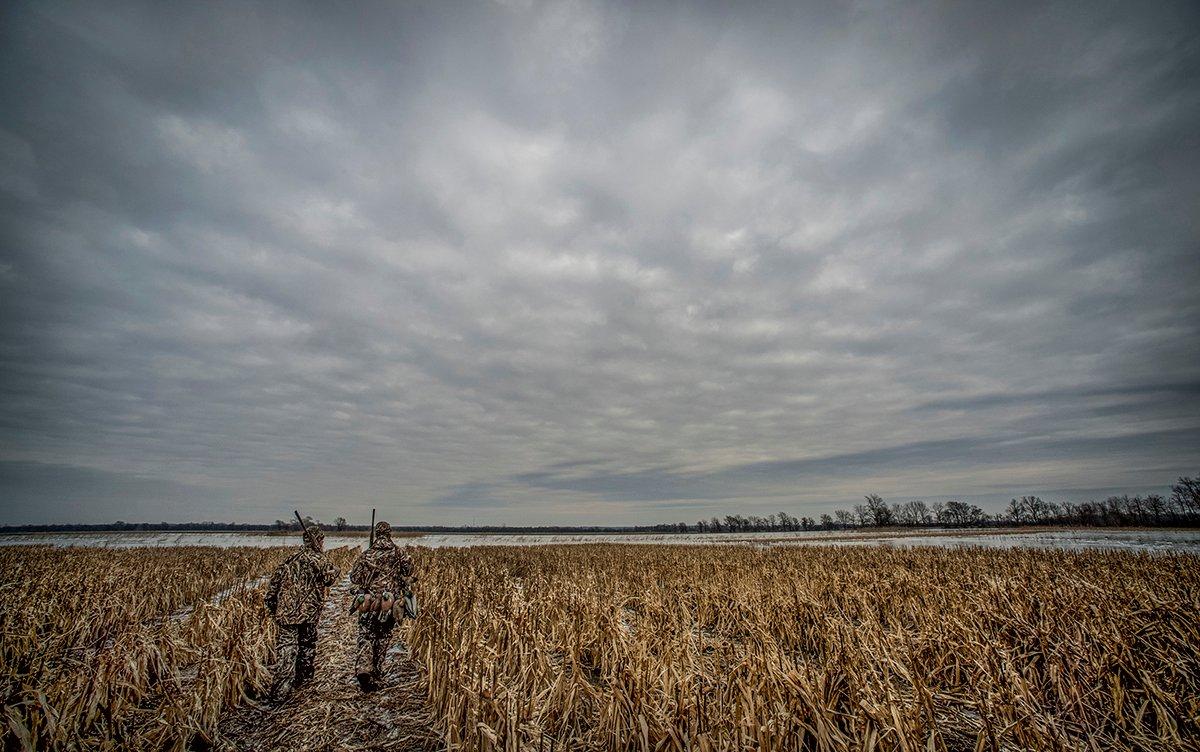Having solid second options can rescue your hunt from disaster
Every duck and goose hunter remembers with pride those great mornings when a well-executed plan came together.
Of course, we also recall with regret those equally memorable days when our plans crashed and burned.
It happens. But even an epic fail at the start of a day doesn't spell doom in the duck marsh or goose field. Think, improvise and roll out a hunt-saving secondary plan. Here are four examples you might encounter.
For Openers
We probably plan more for opening day than any other hunt. Anticipation is high, and we have ample time to scout and scheme. Ironically, though, openers often wreck our well-thought-out plans, especially if you hunt a popular public area.
That happened to me in 2016. I'd scouted a great wood duck flowage and identified an area where birds love to travel. But when I push-poled to my spot at dark-thirty on the opener, eight spotlights greeted me, and I realized my hotspot would be a bust.
No panic. I sat patiently through the first hour of frenzied shooting and watched how birds reacted. When I noticed that several singles and pairs had flown to a remote corner of the marsh, I made my move. Ninety minutes later, I was back at the truck with three woodies, chuckling at the firecracker-like sound of shotguns that continued on the flowage.
The lesson is simple: You can't control where other folks set up. Take a deep breath, identify unhunted spots and relocate. It's better than suffering with the crowds.
The Popular Field
Every goose hunter has pulled into the X to see another set of headlights. It's nobody's fault. Farmers often give permission to several folks. Two simple cures.
First, talk to the other hunters and see if they're willing to combine forces for the morning. Often, they'll welcome that chance as a great alternative to confrontation, and you might make some friends in the process.
If they decline, no worries. Let them have the field, and identify a nearby spot — ideally between the X and the roost — where you can set up and run traffic. Yeah, many birds will overshoot that setup on their way to the hot field, but by using a large spread, good calling and flags to attract attention, you'll pull more than a few honkers close for a look.
Wind and Waves
Being stubborn doesn't play on big water. Sometimes, you'll pull out of port and realize the wind is too strong or from the wrong direction to hunt that diver hotspot. Yeah, you might be able to make it work, but it would be a tough setup and potentially dangerous hunt. And with the clock ticking toward shooting hours, you'll be tempted to try.
Nope. Turn around. Put the boat on the trailer. Identify an area that's sheltered from the wind, and find the nearest launch. You'll probably miss the first hour of shooting, and your secondary spot likely won't attract as many ducks as your go-to area. However, you'll be safe, dry and in the game. And if divers do their diver thing and fly at midmorning, you might pull out a memorable second-chance hunt.
Beaten to the Slough
My buddy Joe found a prairie slough jammed with mallards one late-October afternoon and quickly got permission to hunt from the owner. But when he arrived the next morning, another rig was there to greet him. Turns out they each had permission.
No biggie. Joe knew that property had the hottest slough in the area, but it wasn't the only destination water. Other spots would attract ducks looking to feed and loaf.
A quick scouting foray revealed some birds packed into the corner of a large public area. Joe busted his behind lugging decoys into that spot, but it paid off with a nice strap of mallards and divers.
Again, the lesson is simple: Identify as many backup spots as possible near your first choice. You never know when you'll have to hunt them.
Great No. 2s
You can probably think of many similar scenarios in which you've had to settle for a secondary plan after your initial scheme went awry. That's hunting. Successful waterfowlers always have a mental checklist for plans B, C, D and beyond when their first efforts flounder. Maybe you'll never have to use them. Chances are, however, that you'll play those cards frequently. And if you've prepared, you'll realize that second-chance hunts are often just as enjoyable as your first choice.
Click here for more Realtree waterfowl hunting content. And check us out on Facebook.







